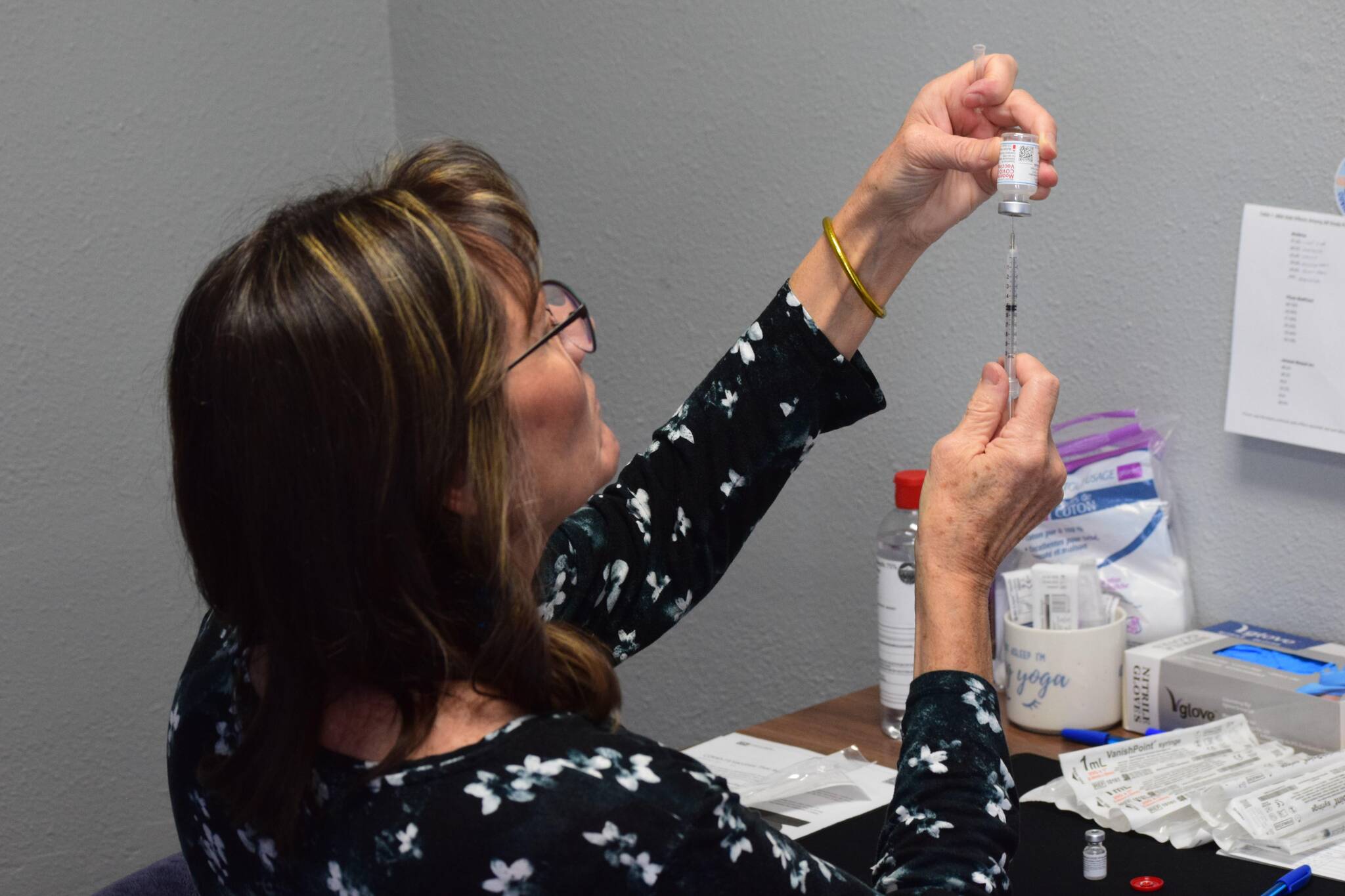The vaccine and bivalent booster for COVID-19 are safe, effective and recommended, Alaska state health officials reiterated during a Public Health ECHO on Wednesday, held via Zoom and livestreamed to Facebook.
State Epidemiologist Dr. Joe McLaughlin responded to multiple questions regarding the possibility of developing adverse effects as a result of receiving vaccines, specifically heart issues and ischemic stroke. He shared data compiled and released earlier this week by Texas epidemiologist Dr. Katelyn Jetelina and Yale physician Dr. Kristen Panthagani, and discussed concerns related to the vaccine.
In regards to the possibility of developing myocarditis — inflammation of the heart wall — or pericarditis — inflammation of tissue around the heart — McLaughlin discussed findings of a study published in the New England Journal of Medicine.
Included in Jetelina and Panthagani’s report, the study compared the number of incidences per 100,000 people of various adverse effects in those who have received the vaccine to those who have contracted COVID-19.
“This is from the most prestigious medical journal in the United States,” he said. “The number of events per 100,000 population is higher in almost every category for people who were infected with the virus.”
Acute kidney injury, heart arrhythmia, deep-vein thrombosis, intracranial hemorrhage, heart attack, myocarditis, pericarditis and pulmonary embolism are all shown in the results to occur many times more frequently in those without the vaccine. Kidney injury occurs in those with the virus at 125 per 100,000. The vaccine was found statistically to reduce the incidence of kidney injury per 100,000. For heart attack, myocarditis and pericarditis, results show between 1 and 3 events in the vaccinated, and between 11 and 25 in those with the virus.
Dr. Lisa Rabinowitz, who was also part of the ECHO, said that any risk of impact to the heart by the vaccines is worth taking the steps to protect the heart from an actual COVID-19 infection.
The observed events where those with the vaccine are found more likely than those with the virus were lymphadenopathy, shingles and appendicitis. Lymphadenopathy, or the swelling of the lymph nodes, is a good sign, McLaughlin said, because it shows your immune system is working. Appendicitis in the vaccinated was almost even with COVID-19 infection, at 5 and 4 respectively.
McLaughlin closed the Public Health ECHO by answering questions about the risk of ischemic stroke. On Friday, a statement was published by the Centers for Disease Control and Prevention in collaboration with the Federal Drug Administration about a preliminary safety signal relating to the COVID-19 vaccine and ischemic stroke in people aged 65 and up.
The safety signal was an increased number of people who had received the vaccine and who were older than 65 were suffering from ischemic stroke, the interruption of blood supply to the brain.
“The U.S. has the most stringent safety monitoring,” McLaughlin said. An automated system, the Vaccine Safety Datalink, is designed to be sensitive, and when it detects the safety signal, an investigation is triggered.
The findings were connected specifically to the Pfizer COVID-19 bivalent booster, and not with Moderna’s.
The CDC investigation, through databases available from Pfizer-BioNTech, Medicare, Medicaid, Veterans Affairs, other countries and the Vaccine Adverse Event Reporting System, found it “very unlikely” that the signal is a real clinical risk. Releasing the statement and notifying the public of the signal is, the CDC says, an important move for transparency. The CDC recommends no change in vaccination practice.
Current guidance is that everyone 6 months of age and older receive the COVID-19 vaccine and remain up to date on the bivalent booster.
To view the Public Health ECHO, visit “UAA CHD Project ECHO” on Facebook. The conversation about vaccine safety begins at 46 minutes and 20 seconds in Jan. 18’s session. The full essay cited by McLaughlin can be found here https://yourlocalepidemiologist.substack.com/p/covid-19-vaccines-and-sudden-deaths.
For more information on vaccine eligibility, visit https://dhss.alaska.gov/dph/epi/id/pages/covid-19/vaccineinfo.aspx.
To find a COVID-19 or influenza vaccine provider, visit vaccines.gov.
Reach reporter Jake Dye at jacob.dye@peninsulaclarion.com.

